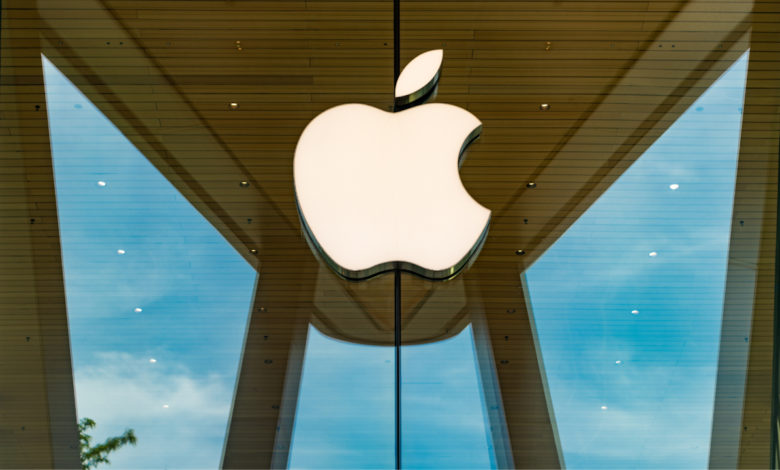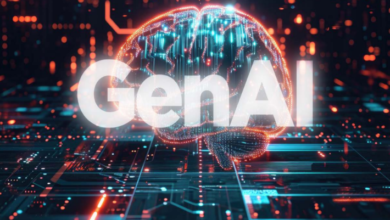Weekly AI Recap: Apple unveils ‘Apple Intelligence,’ Yahoo launches AI-powered app

Also, Musk isn’t happy about Apple’s partnership with OpenAI.
Apple outlined its long-anticipated strategy for capitalizing on generative AI on Monday. The centerpiece? Apple Intelligence, a systemwide upgrade for Apple devices designed to integrate generative AI into a range of apps and services.
To differentiate its AI offerings, Apple will focus on delivering more personalized experiences to users. “It draws on your personal context to give you an intelligence that’s most helpful and relevant for you“ said Craig Federighi, Apple’s senior vice president of software engineering.
Apple Intelligence will operate using on-device processing, negating the need for third-party cloud services. “It’s aware of your personal data without collecting your personal data,” Federighi said, underscoring the company’s commitment to privacy.
Apple also announced a partnership with OpenAI, through which ChatGPT will be integrated with Siri while also enabling text- and image-generation features on Apple devices. All of Apple’s new AI features will roll out later this year.
Yahoo launches AI-powered Yahoo News app
Yahoo has launched a news app using AI-powered software from Artifact, an app it acquired in April.
The Yahoo News mobile app aims to deliver a more personalized and streamlined news-reading experience. Users can customize the news that appears on their feeds by selecting their preferred publishers and categories. Another feature, Top Stories, highlights trending articles from around the world, and will soon be enhanced with AI-generated summaries.
The Yahoo News homepage on desktop also now includes highlights of top news stories and personalized article recommendations.
Musk threatens ban on Apple Devices
Not everyone responded with enthusiasm to Apple’s AI announcements earlier this week.
In an X post on Monday, Elon Musk – owner of X and CEO of Tesla and SpaceX – said he would ban Apple devices at his companies if Apple went through with its plans to integrate ChatGPT into its operating systems on the grounds of “security violation[s].”
If Apple integrates OpenAI at the OS level, then Apple devices will be banned at my companies. That is an unacceptable security violation.
— Elon Musk (@elonmusk) June 10, 2024
He followed up with another – apparently serious – post stating that visitors to his companies’ offices would be required to leave their Apple devices in a Faraday cage – a device designed to block electromagnetic fields – before entering.
Musk has been exchanging shots with ChatGPT parent OpenAI, which he helped found, since it adopted a capped profit model in 2019, enabling it to raise money from investors. The billionaire launched his own AI company, xAI, last summer, positioning it as a direct competitor to OpenAI.
Pope Francis addresses world leaders on AI
This week, Pope Francis said that “human dignity itself” depends on AI safety.
Addressing leaders from the US, the UK, Italy, Canada, France, Germany and Japan at the G7 Summit – an annual forum devoted to discussing international issues like trade, security and climate change – the pontiff advocated for better risk mitigation in AI. “We need to ensure and safeguard a space for proper human control over the choices made by artificial intelligence programs,” he said.
Suggested newsletters for you
After being the subject of a highly publicized deepfake image last year in which he was seen sporting a Balenciaga puffer coat, Pope Francis implored world leaders at the Summit this week to prioritize human agency and wellbeing in the ongoing AI revolution. By the same token, he warned of a world in which human decision-making was handed over entirely to unthinking algorithms.
Philippe Krakowsky speaks to The Drum about AI
In an exclusive interview with The Drum earlier this week, Interpublic Group CEO Philippe Krakowsky evaluated the pros and cons of AI’s growing influence within the marketing indsutry.
He made it clear that IPG is devoted to integrating AI across its operations. ”We want the technology embedded in our ways of working – we don’t want it sitting off to the side or siloed,” he said. At the same time, he flagged his concern about a “reversion to the mean” – a plateau effect in which creativity and individualism give way to algorithmic monotony.
In his view, avoiding such an outcome can be achieved if agencies learn to collaborate with AI without handing over too much creative control. “The unlock is going to be getting folks on the agency side … who have really good judgment, and who are as much craftspeople as they are knowledge workers, and having them interface with the machines,” he says.
For more on the latest happenings in AI, web3 and other cutting-edge technologies, sign up for The Emerging Tech Briefing newsletter.



